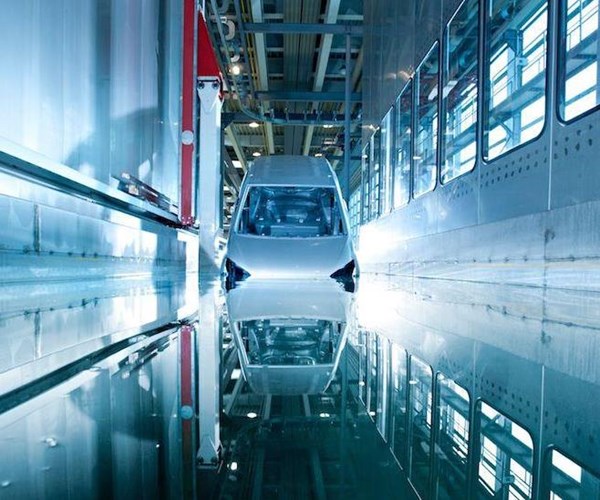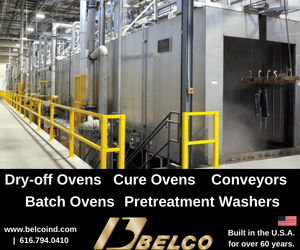Study Shows Electric Impulses Sterilize Industrial Water, Paints
Sterilization of industrial water and paints with electric impulses is the objective of the DiWaL cooperation project funded by the Federal Ministry of Education and Research.

Painting in an immersion bath: Industrial water and paints can be sterilized with electric impulses. Credit: Photo: Eisenmann
Germany's Karlsruhe Institute of Technology says most paints for households or industry are water-based and thus environmentally more compatible than paints based on solvents. Water-based paints, however, have one drawback: microorganisms, such as bacteria, feel very comfortable and spread. This also affects paint shops of automotive industry and other sectors.
Sterilization of industrial water and paints with electric impulses is the objective of the DiWaL cooperation project funded by the Federal Ministry of Education and Research (BMBF). This project is coordinated by researchers of Karlsruhe Institute of Technology (KIT) and executed in cooperation with partners from research and industry.
From the study:
Whether brightly colored or classic gray or black: Before a car is painted, the body is cleaned, pre-treated, and provided with a corrosion-resistant coating by surface pretreatment and electrophoretic immersion painting. The latter is an electrochemical process to produce a homogeneous paint coating by a DC voltage field in an immersion bath.
“However, bacteria can reproduce well in the water and paints used and then adversely affect the quality of surface coating. To control these bacteria, biocides have been used so far. The new electric impulse technology works without chemical additives, reduces water consumption, and even contributes to water protection,” says Dr. Wolfgang Frey of KIT’s Institute for Pulsed Power and Microwave Technology, who coordinates the cooperation project “Dekontamination von industriellen Wässern und Lacken” (DiWaL, Decontamination of industrial water and paints).
By means of electric impulses, cells or microorganisms are exposed to an electric field. The cell membrane is polarized, which means that electric poles form and aqueous pores open. This eventually results in the death of the microorganisms. This phenomenon is used on a large scale for the effective extraction of cell constituents and for killing microorganisms (“cold pasteurization”).
To read more, please click HERE
Related Content
-
Top Shop Builds Original Systems for Coating Medical Devices
Engineers at Surgical Coatings in Colorado have been ingeniously developing their own equipment, automation, processes and software since this powder coater’s inception in 1995.
-
High Temp Alignment Masking Discs
Designed with printed alignment “target” rings for easy application, PCX-SH Series powder peel green discs from Caplugs ensure pinpoint accuracy when centering over any hole.
-
Masking Solutions for Diverse Applications
Global Mask of Barcelona, Spain showcases its solutions at Paint Expo 2024 in Germany.












.jpg;maxWidth=300;quality=90)


